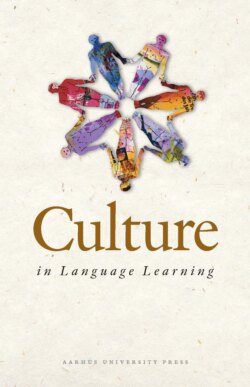Читать книгу Culture in Language Learning - Группа авторов - Страница 5
На сайте Литреса книга снята с продажи.
1. CULTURE: AN INTEGRAL COMPONENT OF LANGUAGE TEACHING
ОглавлениеCulture has always been an integral component of language teaching. Until World War II, culture used to be seen as the literate or humanities component of language study. After the war and following the communicative turn in language pedagogy, it became synonymous with the way of life and everyday behaviors of members of speech communities, bound together by common experiences, memories and aspirations. These communities were seen as grounded in the nation – the national context in which a national language was spoken by a homogeneous national citizenry. In the last ten years, this unitary conception of one language = one national culture has become problematic. National standard languages have come to be seen as arbitrary constructions of the 19th century nation states as much as the social and political institutions that constitute national cultures. At a time of growing economic and political globalization, when cultural encounters are increasingly mediated by information technologies, whose and what culture(s) should we teach: national, regional, or global culture? Urban or rural culture? High brow or popular culture? Oral, written or cyberculture? Gay culture? Marketing culture? And what disciplinary discourse should we draw upon to understand culture: cultural studies, anthropology, ethnography, sociology, education? To what extent is culture separable from power and ideology? The concept of culture has become in many respects politicized and embroiled in the controversies associated with the politics of ethnic identity, religious affiliation and moral values. Ethnic and regional cultures have been rallying points for the politics of identity and for ethnic claims by speakers of minority, heritage, regional, endangered languages. Religious affiliation has been turned into cultural affiliation, as in the controversy surrounding the headscarf for Muslim women in French public schools. And, given the sectarian meanings given to the term ‘culture’ in recent times, questions are being raised about the future of foreign language education in multicultural democracies.
When exploring these questions, various trends of thought become apparent, themselves manifestations of various cultures of nationalism or universalism that preexisted the advent of globalization and the Internet. I first survey how the cultural dimension of language study has been defined, taught and researched for the teaching of English and other languages in the United States and Europe. I then review current interdisciplinary developments in the way culture is conceptualized and how it is now seen as integrating learners’ historicities and subjectivities in language education.
